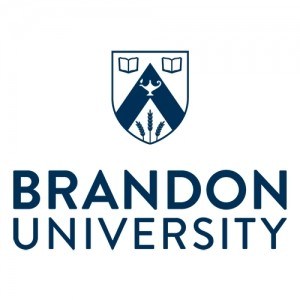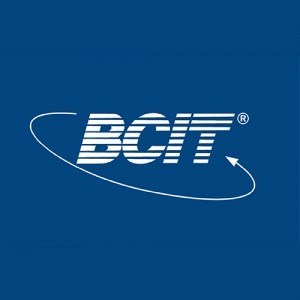Photos of university / #brandonuni
The Bachelor of Science in Biology at Brandon University offers students a comprehensive and in-depth understanding of the living world. This degree program is designed to provide foundational knowledge in various biological disciplines, including ecology, genetics, physiology, microbiology, and evolution, while also emphasizing practical laboratory skills and research methods. Students will explore the diversity of life, from microorganisms to complex ecosystems, gaining insights into the mechanisms that drive biological processes and the interdependence of different forms of life. The program aims to develop critical thinking, analytical skills, and scientific literacy, preparing graduates for diverse career paths or advanced studies in health sciences, environmental management, research, teaching, or conservation. The curriculum includes core courses in general biology, chemistry, mathematics, and physics, alongside specialized courses such as cell biology, ecology, microbiology, and molecular biology. Students also have opportunities to engage in hands-on research projects, fieldwork, and internships, fostering practical experience and professional skills. Brandon University’s supportive faculty and state-of-the-art facilities encourage collaborative learning and innovative research, empowering students to become thoughtful, responsible scientists. By the end of the program, graduates will be equipped with the knowledge, skills, and mindset necessary to pursue successful careers in biological sciences or to continue their education at the graduate level. The program is ideal for students passionate about understanding life processes and eager to contribute to scientific discoveries and solutions addressing global challenges like environmental sustainability, health, and biodiversity conservation.
The Bachelor of Science in Biology at Brandon University offers students a comprehensive understanding of living organisms and their interactions with the environment. This program is designed to provide a solid foundation in biological sciences through a combination of coursework, laboratory experiments, and field studies. Students will explore diverse topics such as cell structure and function, genetics, ecology, evolution, physiology, and biodiversity. The curriculum emphasizes both theoretical knowledge and practical skills, preparing graduates for careers in research, education, healthcare, conservation, and environmental management. Throughout the program, students have opportunities to participate in research projects, internships, and community-based conservation initiatives, gaining hands-on experience in real-world settings. The program also encourages the development of critical thinking, problem-solving, data analysis, and communication skills, which are essential for success in scientific careers. Faculty members are experts in their fields, offering mentorship and innovative research opportunities. Students can choose to specialize in areas such as marine biology, microbiology, or plant sciences, tailoring their education to their professional interests. The program aims to foster a deep appreciation for the complexity of biological systems and the importance of sustainability and ethical considerations in science. Upon graduation, students will be well-equipped to pursue advanced studies or enter the workforce in various biological disciplines. With access to modern laboratories and research facilities, the Brandon University Biology program prepares students to contribute meaningfully to scientific knowledge and address global biological challenges.
Program requirements for the Bachelor of Science in Biology at Brandon University include a combination of core courses, electives, and prerequisites designed to provide a comprehensive understanding of biological sciences. Prospective students must complete a series of foundational courses such as BIOL 1201 - Principles of Biology I and BIOL 1202 - Principles of Biology II, which cover essential concepts in cell biology, genetics, evolution, and ecology. Additionally, students are required to take chemistry courses, including CHEM 1301 - Principles of Chemistry I and CHEM 1302 - Principles of Chemistry II, to fulfill the scientific literacy component and provide a basis for understanding biochemical processes. Mathematics courses like MATH 1200 - Calculus I are also mandated to develop quantitative skills necessary for data analysis and modeling within biological research.
Furthermore, the program stipulates a set of upper-level courses that deepen specialized knowledge, such as BIOL 3000 - Genetics, BIOL 3300 - Cell Biology, and BIOL 3700 - Ecology. Students must complete a minimum number of credits in these advanced courses, ensuring proficiency in both theoretical concepts and practical skills. Laboratory components are integral, with requirements for hands-on experience to reinforce theoretical learning. Students are also encouraged to participate in research projects or internships, which may be part of the elective options, to gain real-world skills and professional experience.
To graduate with a BSc in Biology, students must accumulate a stipulated number of credits—typically around 120 to 130 credits—comprising required courses, electives, and general education credits. Some courses may have prerequisites or co-requisites, and students are advised to consult their academic advisors to plan their course timelines effectively. The program aims to prepare students for graduate studies, careers in health sciences, research, conservation, or biotechnology by providing a rigorous and broad-based education in biological sciences.
The Biology program at Brandon University offers a variety of financing options to support students throughout their studies. Tuition fees for domestic students are approximately $7,400 per year, while international students pay around $14,000 annually. These fees are subject to change and may vary depending on the specific courses or specializations within the program. To assist with the financial burden, students can apply for a range of scholarships, bursaries, and financial aid programs available through Brandon University and external organizations. The university offers merit-based scholarships for high-achieving students, which can significantly reduce the total cost of education. Bursaries are also available for students demonstrating financial need, providing additional support toward tuition and living expenses. Students are encouraged to complete the Free Application for Federal Student Aid (FAFSA) or the Canadian Student Loan application, depending on their residency status, to access government loans and grants. Brandon University also promotes work-study opportunities and part-time employment on campus, enabling students to earn income while balancing their academic responsibilities. International students have access to specific scholarship programs aimed at attracting talented students from around the world. Additionally, some students may qualify for private or corporate sponsorship programs, which can defray the costs associated with their studies. The university provides financial planning resources and counseling services to help students navigate their financing options effectively. Students are advised to start planning early and explore all available funding sources to minimize debt and enhance their educational experience. Overall, Brandon University endeavors to make Biology studies accessible through comprehensive financial support programs, ensuring that students from diverse backgrounds can pursue their academic and career goals without undue financial hardship.
The Bachelor of Science in Biology at Brandon University is a comprehensive undergraduate program designed to provide students with a solid foundation in the fundamental concepts and principles of biological sciences. The curriculum emphasizes both theoretical knowledge and practical skills, preparing graduates for diverse careers in research, teaching, healthcare, environmental management, and more. Students have the opportunity to explore various areas within biology, such as microbiology, ecology, genetics, physiology, and evolution, through a combination of lectures, laboratory work, and field studies. The program encourages critical thinking, scientific reasoning, and data analysis skills essential for success in scientific careers. Throughout their studies, students may participate in research projects under faculty supervision, gaining valuable hands-on experience and contributing to scientific knowledge. Brandon University also offers facilities such as modern laboratories and research centers to facilitate experiential learning. The program emphasizes small class sizes and personalized mentorship to enhance student engagement and academic success. Graduates of the Biology program are well-prepared to pursue graduate studies, careers in scientific research, or employment in environmental agencies, healthcare, education, or biotechnology sectors. The university's strong connections with local and national research institutions provide additional opportunities for internships and collaborative projects. The curriculum is regularly reviewed and updated to reflect current developments in biological sciences, ensuring students receive relevant and up-to-date education. Overall, Brandon University's Bachelor of Science in Biology aims to cultivate inquisitive, skilled, and responsible scientists who can contribute positively to society through their expertise in biological sciences.


